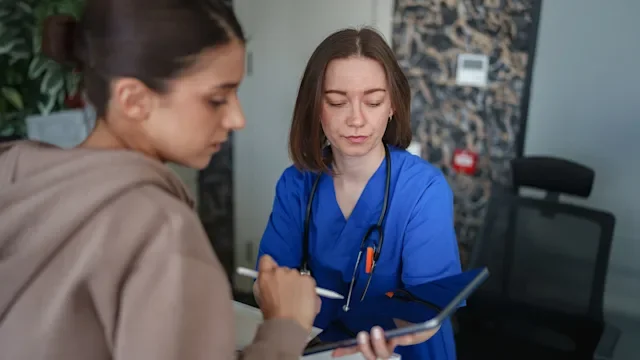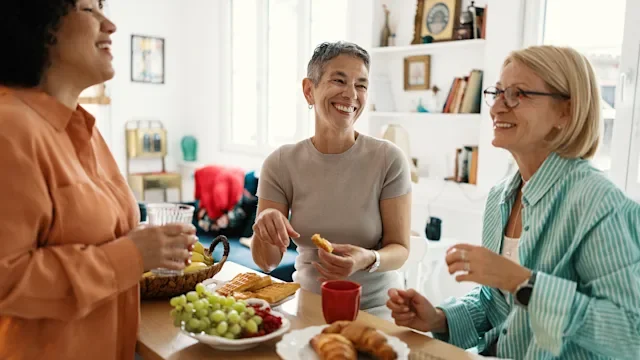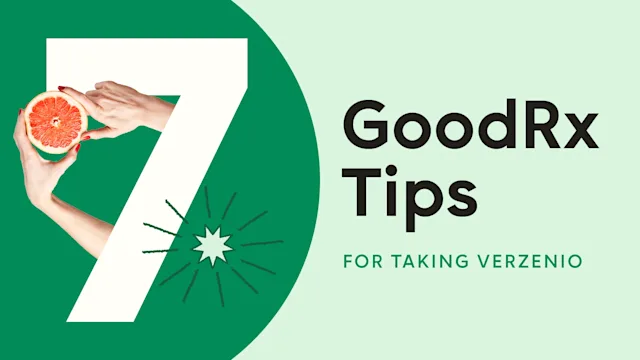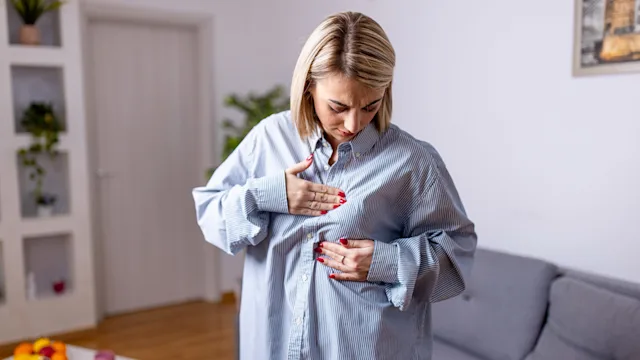Key takeaways:
There are many resources available for people living with breast cancer, including support groups and one-on-one mentorships.
Family members, friends, and caregivers can also find support through groups and individual counseling services.
There are support groups and resources for men with breast cancer, even though men are diagnosed far less frequently compared to women.
Breast cancer is one of the most common types of cancer diagnosed among American women. If you’re one of these women, you’ve probably experienced a lot of emotions.
Anger, sadness, fear, and depression — they’re par for the course after a breast cancer diagnosis. Family members and friends may also face similar emotions. Fortunately, there are places you can turn to for help after a breast cancer diagnosis.
In this post, we’ll introduce you to organizations and resources that can support you throughout your journey. We’ll also share groups that support caregivers along with resources for men with breast cancer.
Breast cancer support groups for patients, survivors, and those in remission
It’s easy to find resources for people with breast cancer. Local hospitals and cancer treatment centers often offer support groups and counseling services. You can ask your healthcare provider what might be available to you.
There are also organizations across the country that host support groups either by phone, video, or through online chat communities. Examples of these services include:
BreastCancer.org: BreastCancer.org invites anyone impacted by breast cancer to join its community and get involved in online discussions or attend virtual meetings.
CancerCare: CancerCare offers two free, 15-week online support groups led by oncology social workers. One of the groups is for people diagnosed with breast cancer who are currently receiving treatment. The other is for people who have completed cancer treatment within the past 18 months.
Cancer Support Community: Many of the Cancer Support Community’s 175 locations offer support groups for people with cancer either online or in person. The organization also has a cancer support line you can call at 1-888-793-9355.
Cancer Survivors Network: The American Cancer Society’s Cancer Survivors Network has discussion boards and chat rooms where members can meet other survivors, tell their stories, and share practical information.
Living Beyond Breast Cancer: This organization offers two private support groups on Facebook. One is for any age and any stage of breast cancer, from newly diagnosed to years in remission. The other is for young women diagnosed with breast cancer. Living Beyond Breast Cancer also has a Breast Cancer Helpline that connects you to a trained volunteer who has also been diagnosed with breast cancer.
National Breast Cancer Foundation (NBCF): The NBCF hosts a support group online and a live support group in the Dallas/Fort Worth Texas area. Visit the RSVP page to sign up.
Reach to Recovery: The American Cancer Society’s Reach to Recovery program connects people with breast cancer to trained volunteers who are breast cancer survivors for one-on-one support.
Sharsheret: Sharsheret provides support and resources for Jewish women and families living with breast cancer. They can connect you with a peer supporter or you can tune in to one of its many virtual programs.
Young Survival Coalition: You can find other young breast cancer survivors on the Young Survival Coalition’s private Facebook group or one of its virtual hangouts. The coalition hosts hangouts for survivors, people with metastatic cancer, the LGBTQ+ community, and more.
Breast cancer support groups for families of patients
Many of the organizations mentioned above also offer support groups for family members, friends, and caregivers. For instance, the Young Survival Coalition hosts a hangout for mothers of breast cancer survivors. It has another hangout for men whose loved one has or had breast cancer.
Here are a few more support groups for anyone who cares for someone navigating breast cancer:
After Breast Cancer Diagnosis (ABCD): ABCD provides mentors to anyone impacted by breast cancer, including friends and family members.
Breast Cancer Family, Friends, & Caregiver Support Group: This private Facebook group has over 8,000 members who support and encourage each other through questions and conversation.
SHARE Cancer Support: If you’re a family member, friend, or caregiver to someone with breast cancer, you can call SHARE’s helpline at 1-844-275-7427 to get emotional support. You can also fill out a support request form on its website.
How to find a therapist specializing in cancer patients
As you negotiate your breast cancer journey, you may discover that you need one-on-one attention from a mental health professional. Here are some ways you can find a counselor who specializes in cancer:
Look for counseling services at your local hospital or cancer treatment center.
Ask your oncologist or cancer care team for a referral.
Check out Psychology Today’s search tool for finding a cancer therapist.
Talk to your health insurance plan about covered therapists or therapy programs.
See if your employer offers counseling services through an Employee Assistance Program (EAP).
Get referrals from people in your cancer support group.
Contact your local health department or community mental health office.
Breast cancer support for men
Men get breast cancer, too. A breast cancer diagnosis is far less common in men compared to women. But that can make it difficult for men because they may feel like they face the diagnosis alone.
Organizations that support men with breast cancer have cropped up over the past few years. They include:
The Male Breast Cancer Coalition (MBCC): This organization provides advocacy, online support, and discussion communities for men diagnosed with breast cancer and their loved ones. The MBCC also hosts virtual events and has an ongoing documentary series called Men Have Breasts Too.
CancerCare: CancerCare and Susan G. Komen have teamed up to offer 12-week telephone support groups for men who have been diagnosed with breast cancer. An oncology social worker moderates the group.
Going Beyond the Pink: This organization offers breast cancer information to male and female breast cancer patients as well as their family members and caregivers.
The bottom line
More than 3.8 million women have a history of breast cancer in the U.S. About 2,650 men will be diagnosed with breast cancer in 2021. Thankfully, those diagnosed with breast cancer can find support groups and counseling services across the country. Loved ones and caregivers can also find emotional support and individual counseling locally or online. By reaching out to the organizations listed in this post, you and your loved ones will find new friends and inspiration on your breast cancer journey.

Why trust our experts?
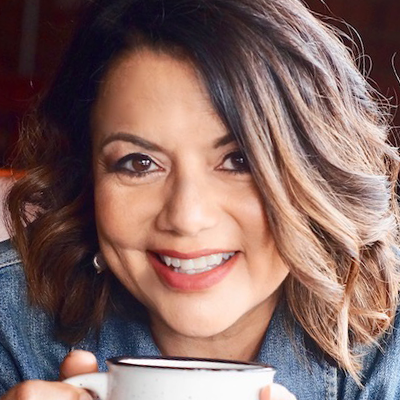


References
After Breast Cancer Diagnosis. (n.d.). Get support.
American Cancer Society. (n.d). Reach to recovery program.
American Cancer Society. (2022). Key statistics for breast cancer.
Breastcancer.org. (n.d.). Breastcancer.org community.
Breastcancer.org. (n.d.). Join our community.
Breastcancer.org. (2022). U.S. breast cancer statistics.
CancerCare. (n.d.). Breast cancer patient support group.
CancerCare. (n.d.). Breast cancer post-treatment survivorship support group.
CancerCare. (n.d.). Susan G. Komen male breast cancer patient support group.
Cancer Support Community. (n.d.). Call the cancer support helpline.
Cancer Support Community. (n.d.). Find a location.
Cancer Survivors Network. (n.d.). Cancer survivors network.
Centers for Disease Control and Prevention. (2024). Breast cancer in men.
Centers for Disease Control and Prevention. (2025). Breast cancer statistics.
Facebook. (n.d.). Breast cancer family, friends, & caregiver support group. Meta Platforms Inc.
Kramek, D. (2021). Signs & symptoms of male breast cancer. Going Beyond the Pink.
Living Beyond Breast Cancer. (n.d.). Breast cancer helpline.
Living Beyond Breast Cancer. (n.d.). Support options.
Male Breast Cancer Coalition. (n.d.). Male breast cancer coalition.
Male Breast Cancer Coalition. (n.d.). Men have breasts too.
National Breast Cancer Foundation. (n.d.). Breast cancer support group.
Psychology Today. (n.d.). Find a cancer therapist.
SHARE Cancer Support. (n.d.). Breast cancer helpline.
Sharsheret. (n.d.). Breast cancer support.
Sharsheret. (n.d.). Connect with a peer supporter.
Sharsheret. (n.d.). Sharsheret coronavirus virtual programs.
Young Survival Coalition. (n.d.). Connect with other breast cancer survivors online.
Young Survival Coalition. (n.d.). Virtual hangouts for young adults affected by breast cancer.
Young Survival Coalition. (n.d.). YSC virtual hangout for male co-survivors.
Young Survival Coalition. (n.d.). YSC virtual hangout for mother co-survivors.



